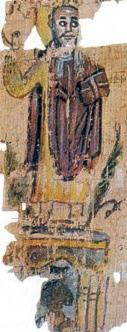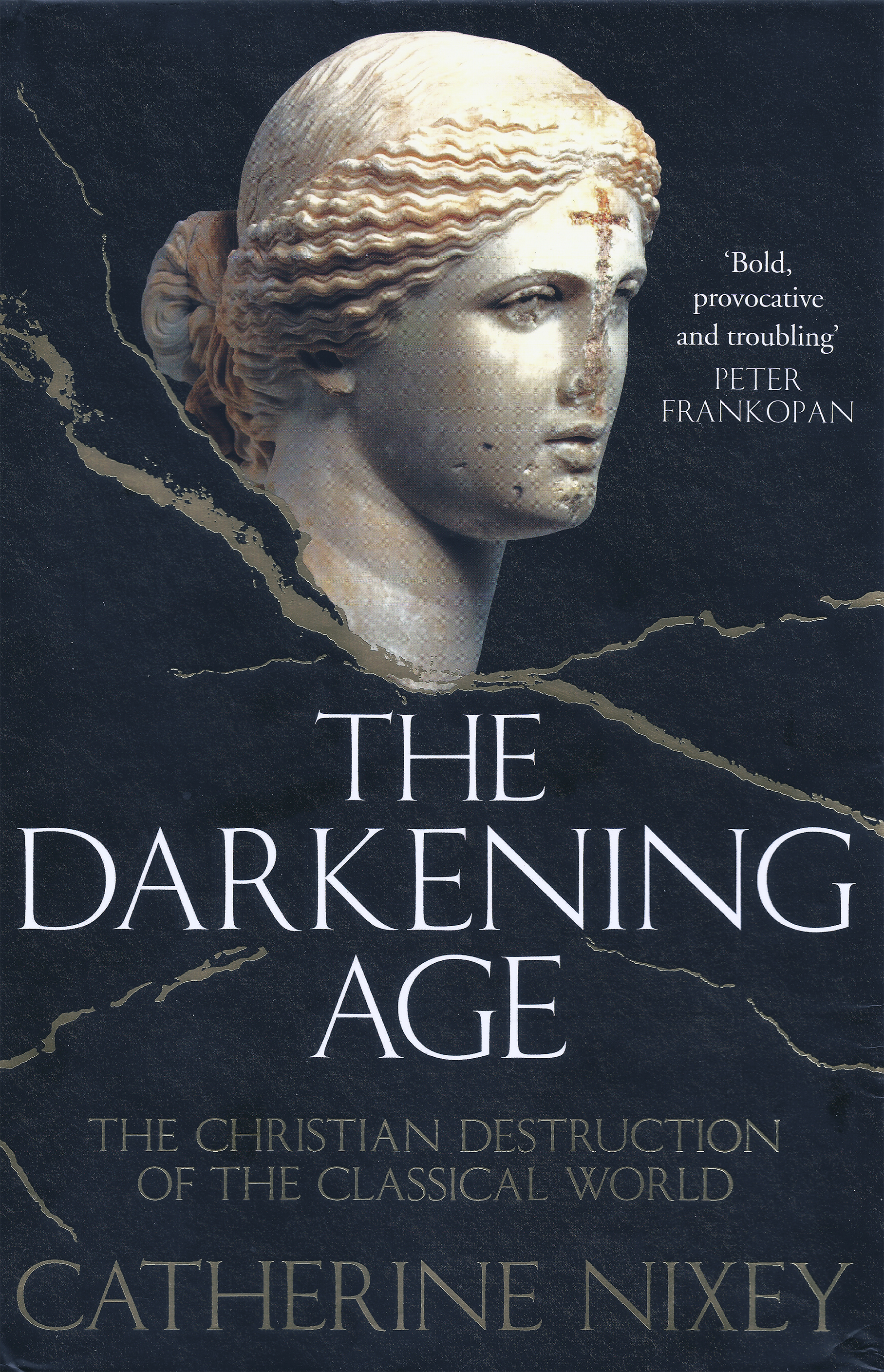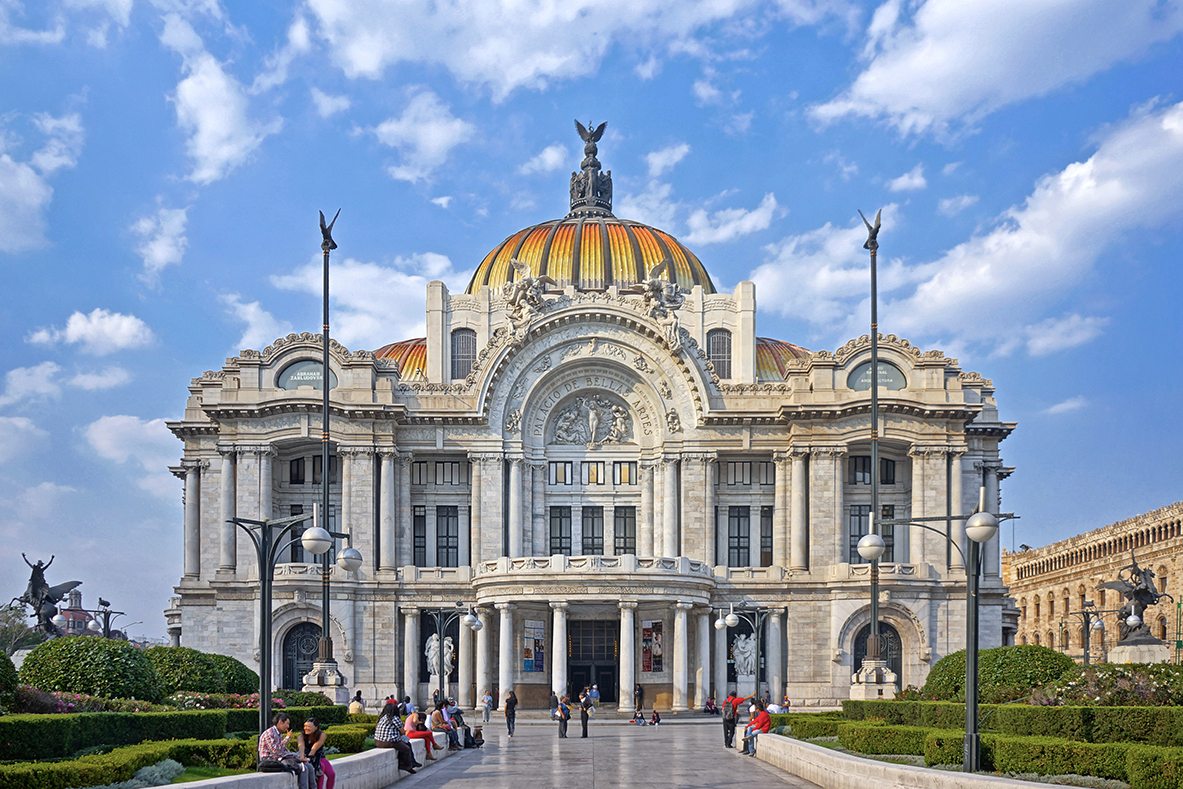by Ferdinand Bardamu
 The Christian apologetics of Prof. Kevin MacDonald
The Christian apologetics of Prof. Kevin MacDonald
Sociobiological accounts of Western pathological altruism are based on inferences not supported by the available empirical evidence. For example, if the individualism of European societies is the result of evolutionary adaptation under ecologically adverse conditions, a similar tendency would be found among other ethno-racial groups that evolved in the same environment. However, Eastern Europeans and Northeast Asians evolved in the same North Eurasian and Circumpolar region but remain strongly ethnocentric and collectivist.
Those arguing in favor of a European genetic basis for pathological altruism face another serious problem: for thousands of years of recorded history, there isn’t a single instance of collectively suicidal behavior among Europeans until the Christianization of Rome in the 4th century. Why this is the case requires the following explanation.
Ancient ethical norms diverged considerably from modern ones. Pity was condemned as a vice; mercy was despised as a character flaw. Mercy was viewed as the antithesis of justice because no one deserved help that had not been earned. The rational man was typically expected to be callous towards the sufferings of the less fortunate. His philosophical training in the academies had shown him that mercy was an irrational and impulsive behavior whose proper antidote was self-restraint and stoic calm in the face of adversity. In the Roman world, clementia was reserved exclusively for the vanquished in battle or the guilty defendant at trial. Weaklings and the economically disadvantaged were beneath contempt.
Life in the ancient world was quite brutal by modern Western standards. The punishments meted out to criminals—blinding, burning with coals, branding with hot irons and mutilation—were exceedingly cruel and unusual. Public entertainment was noted for its brutality. Scratching, biting, eye gouging and mauling an opponent’s genitals were accepted as legitimate tactical maneuvers for boxers and wrestlers alike. In the naumachia, armies of convicts and POW’s were forced to fight each other to the death in naval vessels on man-made lakes. Gladiatorial combat remained immensely popular for centuries, until the monk Telemachus tried to separate two gladiators during a match in the Roman coliseum. He was promptly stoned to death by the mob for his efforts. Slavery was considered a non-issue in the ancient world. Aristotle rationalized the institution by dividing men into two classes: those by nature free, and therefore capable of assuming the responsibilities of citizenship, and those who were by nature slaves. A slave was defined as chattel property bereft of the capacity to reason. This meant that he could be sexually exploited, whipped, tortured and killed by his master without fear of legal reprisal.
Racism or, more accurately, “proto-racism” was more widespread and more accepted in the ancient world than in our politically correct modern Western “democracies.” As revealed by in-depth examination of classical literary sources, the Greeks were typically ethnocentric and xenophobic. They were given to frequent generalization, often negative, about rival ethnicities. The Greeks casually and openly discriminated against foreigners based on deeply ingrained proto-racial prejudices. Ethno-racial intermarriage, even among closely related Greek ethnic and tribal groups, was universally despised. It was even regarded as a root cause of physical and mental degeneration. The absence of terms like “racism,” “discrimination” and “prejudice” in the ancient world reveals that proto-racist attitudes were not generally condemned or seen as pathological.
Greek intellectual and biological superiority was determined by their intermediate geographical position between lazy, stupid northern Europeans and effeminate, pleasure-loving Asians. The Greeks were the best of men because they had been exposed to the right climate and occupied the right soil. The Greeks looked down upon foreigners, pejoratively referring to them as “barbarians.” This was an onomatopoeia derived from Hellenic mockery of unintelligible foreign speech. Barbarians were viewed as the natural inferiors of the civilized peoples of the Mediterranean basin. Prejudice was not only directed at foreigners. Significant interethnic rivalry also existed among fellow Greeks, as demonstrated by the history of the Peloponnesian Wars. Greek patriots despised their Roman conquerors, even referring to them contemptuously as barbarians. After the conquest of Macedonia, the Romans embraced the prejudices of their Greek subjects as their own.
How do contemporary sociobiological accounts of Western pathological altruism explain this?
It has been alleged that pathological altruism was always a deeply ingrained European character flaw. The Pythagorean communism of the 5th century BC is frequently mentioned as corroborating evidence, but these practices were reserved for the intellectual elite. Much the same could be said for Stoic cosmopolitanism, which bears no similarity to the deracinated cosmopolitanism of the modern West. In the Greek variant, the intellectual gains world citizenship by living in accord with the cosmic law of universal reason; in the Roman variant, the cosmopolis is identified with the Roman patria.
The Hellenistic empire of Alexander the Great is believed by some to have been established on a morally universalist foundation. These accusations have their basis in the rhetorical amplifications and literary embellishments of chroniclers who wrote long after the exploits of Alexander. The expansion of the Greek sphere of influence in Asia was romanticized by some as implying a new world order based on an imagined brotherhood of man. This is contradicted by the historical record. In actuality, Alexander and his generals promoted a policy of residential segregation along ethno-racial lines in the conquered territories, with Greek colonists on one side and natives on the other. In the Greek view, Hellenized Egyptians, Israelites, Syrians and Babylonians were racial foreigners who had successfully assimilated Greek culture; clearly then, cultural and linguistic Hellenization was not enough to make one “Greek.”
Ancestral lineage was an important component of ancient Greek identity. Herodotus observed that the Greeks saw themselves as a community “of one blood and of one tongue.” Caracalla’s extension of the franchise to Roman provincials in 212 AD was not an act of universalism per se, but occurred after centuries of Romanization. It was done for purposes of taxation and military recruitment. This imperial legislation, known as the Antonine Constitution, did not abolish ethnic distinction among Roman citizens.
The conventional sociobiological explanation of Prof. MacDonald and others is contradicted by the pervasive brutality and ethno-racial collectivism of ancient societies. Given Christianity’s role as an agent of Western decline, no explanation will be fully adequate until this is finally acknowledged and taken into consideration. Prof. MacDonald, in an essay for The Occidental Observer, “Christianity and the Ethnic Suicide of the West”, ignores this major obstacle to his own detriment, arguing that from a Western historical perspective, Christianity was a relatively benign influence. Despite MacDonald’s eminence as an authority on 20th century Jewish intellectual and political movements, his defense of Christianity reveals a superficial understanding of history, contemporary political theory and Christian theology.
Prof. MacDonald whitewashes Christianity throughout, denying that the religion has ever been “a root cause of Western decline.” He observes that Christianity was the religion of the West during the age of European exploration and colonization, but not once does he mention that Christianity was a spent force by the late Middle Ages, having undergone a serious and irreversible decline in power and influence. Prof. MacDonald does not mention that after 1400, Christendom was no longer unified because the legitimacy of medieval ecclesiastical authority had been shattered; first, by the rediscovery of classical science and philosophy, which shook the Christian worldview to its very foundations, and second, by the Protestant Reformation, which reduced the pope to the status of a mere figurehead.
This set the stage for the large-scale dissemination of atheism and agnosticism in the 20th century. Gutenberg’s invention of the printing press, combined with the spread of mass literacy, virtually ensured that the Christian church would never again control European intellectual life. If the late medieval church had retained the same ecclesiastical and political authority it had under Pope Innocent III, European colonization and exploration of the globe would have been virtually inconceivable. For these reasons, it is more historically accurate to situate European territorial expansion within the context of resurgent pagan epistemic values, i.e. empirical rationality, intellectual curiosity and the pursuit of scientific progress for its own sake, during the Renaissance and the Scientific Revolution.
It is argued that the decline of the West has co-occurred with the decline of Christianity as an established faith, but this is incorrect. The Renaissance and the Scientific Revolution, as well as exploration and colonization that occurred along with it, were only possible because of the collapse of ecclesiastical authority in the late medieval period. This eroded the Christian stranglehold on the spread of knowledge, replacing blind faith with the pagan epistemic values of classical antiquity. The recent decline of the modern West beginning in the 1960s has co-occurred with the growing influence of a neo-Christian ethic in the public sphere, just as the decline of the ancient world co-occurred with the triumph of Christianity over the forces of paganism.
Prof. MacDonald observes that Christians have not always been consistent moral universalists in practice, but this is a non-sequitur. Marxists have not always been consistently anti-racist or multiculturalist, given Stalin’s rabid anti-Semitism, aggressive policy of national Russification, and deportation of entire ethnic populations to Siberia, but this does not change the fact that anti-racism and multiculturalism are characteristic features of Marxist orthodoxy. Since when have the inconsistent practices of a few individuals ever mitigated or excused the destructive nature of an ideology completely at odds with the biological reality of human nature? Likewise, MacDonald’s non-sequitur does not affect the central importance of spiritual equality in the Christian belief-system. Historically, Christians were divided on whether spiritual equality entailed certain real-world implications or was of purely eschatological significance.
This hopelessly muddled line of argument revolves around a nebulous definition of “traditional” Christianity, a term either alluded to or directly mentioned throughout. If traditional Christianity is supposedly good for Europeans, how can it be universalist and ethnocentric at the same time, as in the case of American abolitionists and slave-owners? Or is traditional Christianity whatever form of Christianity MacDonald finds acceptable? If this is the case, what is the point he is trying to make here? Prof. MacDonald mentions that the patristic writers frequently criticized Jewry for being obsessed with biological descent. This placed them at odds with the multicultural and multiethnic ideology of the Christian religion. But how can the patristic writers, who systematically formulated the official dogmatic orthodoxy of the church, not be representative of “traditional” Christianity? Paradoxically, MacDonald acknowledges the ancient origin of the church’s race-mixing proclivities. If he believes that the patristic writers were corrupted by egalitarian principles at a very early date, he should at least provide evidence of theological subversion.
According to Prof. MacDonald, the secular left, which initiated the cultural revolution of the 1960s, is not Christian in inspiration. This statement is egregiously wrong, revealing a profound ignorance of the philosophies of liberalism and Marxism, especially in terms of their historical development. These belief-systems originated in a Christian theological context. The core ideas of liberalism, human rights and equality, have their genesis in the careful biblical exegesis of 17th and 18th century Christian political theorists. Marxism is deeply rooted in the fertile soil of the Christian tradition, especially in the speculative Protestant rationalism of Hegel. It also draws additional inspiration from the Reformed theological principles of Luther and the communist socio-economic practices of the primitive Christian church.
The hostility between the secular left and “traditional” Christianity is emphasized to further demonstrate the non-Christian origins of Western pathological altruism. However, his observation is completely irrelevant, as both traditional and secular Christianity are essentially rival denominations within the same Christian religious tradition. The mutual hostility that exists between the two is to be expected. Furthermore, it is foolhardy to maintain that traditional or mainline Christianity has been corrupted by the secular left; given the origins of liberalism and Marxism in Christian theology and biblical exegesis, it is more accurate to say that traditional Christianity has allowed itself to be corrupted by its own moral paradigms after taking them to their logical conclusion. The Christian theological basis of social and biological egalitarianism is merely the rediscovery and application of the original ethical teachings of Jesus and the primitive church.
Prof. MacDonald says the “contemporary zeitgeist of the left is not fundamentally Christian.” He fails to realize that the liberal-leftist ideas behind Third World immigration and state-sanctioned multiculturalism have deep roots in the Christian tradition. There is a common misunderstanding, no doubt propagated by Christian apologists, that one must embrace the supernatural claims of Christian religious dogma to be considered a Christian. This contention is not supported by contemporary scholarship. For example, Unitarians reject traditional Christian orthodoxy but remain well within the Christian fold. Neo-Christianity, like Unitarianism, is a thoroughly demythologized religion, properly defined as the application of New Testament-derived ethical injunctions to the management of contemporary social and economic relations. By this definition, Liberals and Marxists are no less Christian than your typical bible-thumping “holy roller.”
If Christianity is ultimately responsible for the destruction of Western civilization, asks MacDonald, why aren’t Middle Eastern Christians destroying their own societies by aggressively pushing the same universalist and ethno-masochistic agenda? In this case, the comparison is historically flawed. The medieval Islamic conquest of Byzantine North Africa and the Near East virtually guaranteed that Middle Eastern Christianity would follow a socio-historical trajectory differing significantly from the one followed by Latin Christianity. Up until quite recently, Middle Eastern Christians inhabited a medieval world no different from the one Europeans had lived in for centuries before the dawn of the Renaissance. Middle Eastern Christians never experienced any Reformation that allowed them to shake off the tyranny of ecclesiastical authority and wrestle with the real-world implications of spiritual equality.
Furthermore, none of the conditions for a Reformation ever existed in what remained of Middle Eastern Christendom. There was no humanist movement, which meant no dramatic increase in literacy or availability of printed material. There was no rediscovery of the patristic writers or of the ancient biblical manuscripts in the original languages. Access to the original source material would have made it easier for religious dissidents to challenge ecclesiastical authority and refute long-established medieval Christian dogma. In fact, Middle Eastern Christians were dhimmis, a persecuted jizya-paying religious minority in a larger Moslem world hostile to their very survival. Given the precariousness of their legal situation in the Ottoman empire, they had no time for the finer points of biblical exegesis or theological analysis.
Prof. MacDonald states, erroneously, that in Judaism there is no “tradition of universalist ethics or for empathy with suffering non-Jews.” He is obviously not familiar with the teachings of the Old Testament: “The foreigner residing among you must be treated as your native-born. Love them as yourself, for you were foreigners in Egypt. I am the LORD your God.” (Leviticus 19:34) Christianity is simply the radical universalization of Hebrew ethical concern for the plight of hapless foreigners living among them; as such, it is firmly embedded within the soil of 1st century Palestinian Judaism. Although Christianity has absorbed Greek philosophical ideas because of its wide dissemination in Europe, it is obviously not a European invention.
At this point, Prof. MacDonald asks: If the “moral universalism / idealism” that is destroying Sweden is due to Christianity, how does one explain “how people can lose every aspect of Christian ideology except the ethics”? To answer this question, let us inquire into the historical genesis of the Christian religion and the identity of its earliest followers.
Christianity originated in the yearning of Palestinian Jewry for social justice while having to patiently endure the tyranny of foreign rulers. Under these harsh conditions, Jewish beliefs in a messiah acquired an unprecedented sense of urgency, eventually assuming militant and apocalyptic overtones. This sense of urgency reached a crescendo in 1st century Palestine; self-proclaimed messiahs amassed armed bands of followers poised and ready to establish the son of David on the throne of Caesar, by force if necessary. This is the environment in which the Jesus myth originated, woven together from different strands of Jewish tradition in an atmosphere of deep-seated yearning for the coming advent of a messiah. This advent symbolized the end of Roman tyranny and the establishment of the kingdom of god on earth.
Christianity’s earliest followers were drawn from the refuse of the empire. Why? Because Christianity was the first mass movement in history to give concrete expression to the inner yearning of the people for freedom from oppression and hunger. What man has not sought to escape the oppression of his masters or the poverty of his surroundings? With the rise of Christianity, like the rise of Jewish Messianic belief, the inchoate yearnings of the mob for deliverance from oppression were replaced with a vision of a new social order that would inaugurate an age of universal justice and freedom. This new vision would lead to the establishment of a worldwide communist economic system that would forever solve world poverty and hunger. In the New Testament was found a blueprint for an ideal society that would inspire generations of social reformers and leftist revolutionaries.
For centuries, it was the only widely accessible document that demanded social justice for the poor and downtrodden and the only document to propose a practical solution to the problem of social inequality: the establishment of a socially egalitarian or communist society on earth. The religion of Christianity tapped into this deep-seated, age-old psychological yearning of the masses and, for the first time in history, gave it a coherent voice. This ensured the survival of ethical Christianity long after the decline of ecclesiastical orthodoxy in the late Middle Ages, allowing it to flourish, virtually unchallenged, in the ostensibly secular milieu of the modern 21st century Western “democracies.”
As a control mechanism, ethical Christianity was remarkably flexible. It could be used to justify any social arrangement, no matter how unjust or brutal. Its promise of “pie in the sky” had a remarkably pacifying effect on the illiterate serfs, who were expected to toil on the lord’s manor for their daily bread. Feudal landowners encouraged Christian religious instruction because it produced an easily controlled and manipulated peasantry. Vassals had it drummed into their heads from the moment of birth that servants must obey their masters. The church promised them life everlasting in paradise if they faithfully observed this requirement until death.
The great rarity of the peasant revolt against serfdom reveals the shrewd pragmatism of those who used religion as a means of safeguarding the public order. Punishment for original sin and the Pauline dualism between body and spirit, among other things, provided European rulers with additional convenient rationalization for the institution of serfdom. In the right hands, the ethical pronouncements of the New Testament could be used as an agent of revolutionary change, capable of stirring up mass revolt and potentially unleashing forces that could tear apart the “vast fabric of feudal subordination.” This was demonstrated by the Peasant Revolt of 1381, ignited by the fanatical communist-inspired sermons of the renegade priest John Ball.
The concept of human rights—Christian ethical injunctions in secularized form—illustrate in concrete fashion why the morality of the New Testament managed to survive long after the decline of Christian dogmatic orthodoxy. Rights dominate the field of political discourse because they are considered by egalitarian ideologues the most effective mechanism available for ensuring (a) the equal treatment of all persons and; (b) equal access to the basic goods deemed necessary for maximal human flourishing.
This practicality and effectiveness must be attributed to the ability of rights to fulfill the secret yearning of the common people, which is to ameliorate, as much as possible, the baneful effects of oppression and want. It achieves this by demolishing the traditional social and political distinctions once maintained between aristocracy and peasantry, placing all individuals on the same level playing field. The concept of rights has allowed the masses to closely realize their age-old utopian aspirations within a liberal egalitarian or socialist context. The concept’s great flexibility means that it can be interpreted to justify almost any entitlement. Even those who openly rejected the notion of rights, such as utilitarian philosopher Bentham, were unable to devise a more satisfactory mechanism that ensured equal treatment of all.
The Marxist tradition, emerging from under different historical circumstances, never fully decoupled Christian ethical teaching from traditional orthodoxy; instead, Marxist philosophical method necessitated an “inverted” Judeo-Christian eschatological and soteriological framework, largely because dialectical materialism is primarily an inversion of Hegel’s speculative Protestant rationalism.
In Hegelian Christianity, knowledge is substituted for faith. This eliminated the “mysteries” of Christian orthodoxy by making rational self-knowledge of god a possibility for all believers. The trinity as absolute mind, and therefore reason incarnate, means that Jesus of Nazareth was a teacher of rational morality, although his ethical system had been corrupted by patristic and medieval expositors. If “the rational is real and the real is rational,” as Hegel said, history is not only the progressive incarnation of god, but god is the historical process itself. The triadic structure of the natural world, including human self-consciousness, proves that the structure of objective reality is determined by the triune godhead of Christianity.
Hegel’s interpretation of Christianity gave Marx the raw material he needed to extract the “rational kernel” of scientific observation from “within the mystical shell” of Hegelian speculative rationalism. This liberated dialectical analysis from Hegel’s idealist mystification, allowing Marx to do what Hegel should have done, before succumbing to Christian theological reflection: construct a normative science, a Realwissenschaft, analyzing the socio-economic developments within capitalism that would unleash the forces of worldwide proletarian revolution.
The secularization of Christianity preserved the religion’s ethical component, while discarding all supernatural elements. This gave us modern liberalism. In contrast, Marx turned Hegel’s Protestant theological system upside down, a process of extraction resulting in the demystification of Hegelian Christianity. In Marxist philosophy, the inversion of dialectic removes the analytical tool—the “rational kernel”—from within its Christian idealist “shell.” This is then applied to the analysis of real-world phenomena within a thorough-going materialist framework, like the internal contradictions of capital accumulation in Marxist crisis theory.
Prof. MacDonald argues for a genetic basis for moral universalism in European populations, a difficult argument to make given the historical evidence indicating a total absence of pathological altruism in the ancient world before Christianization of the Roman empire. He mentions the systematic brainwashing of Europeans and the major role of Jewish political, academic and financial influence in the ethnocide of the West, but again forgets to mention that all these cultural forces rationalize European dispossession using political ideas like universal human rights and equality, the two fundamental pillars of secularized Christianity.
Prof. MacDonald’s attempt to exculpate Christianity of being “a root cause of Western decline” is easily refuted. In the final analysis, Christianity, at least in its organized form, is the single greatest enemy of Western civilization to have ever existed.
______ 卐 ______
Liked it? Take a second to support The West’s Darkest Hour.





